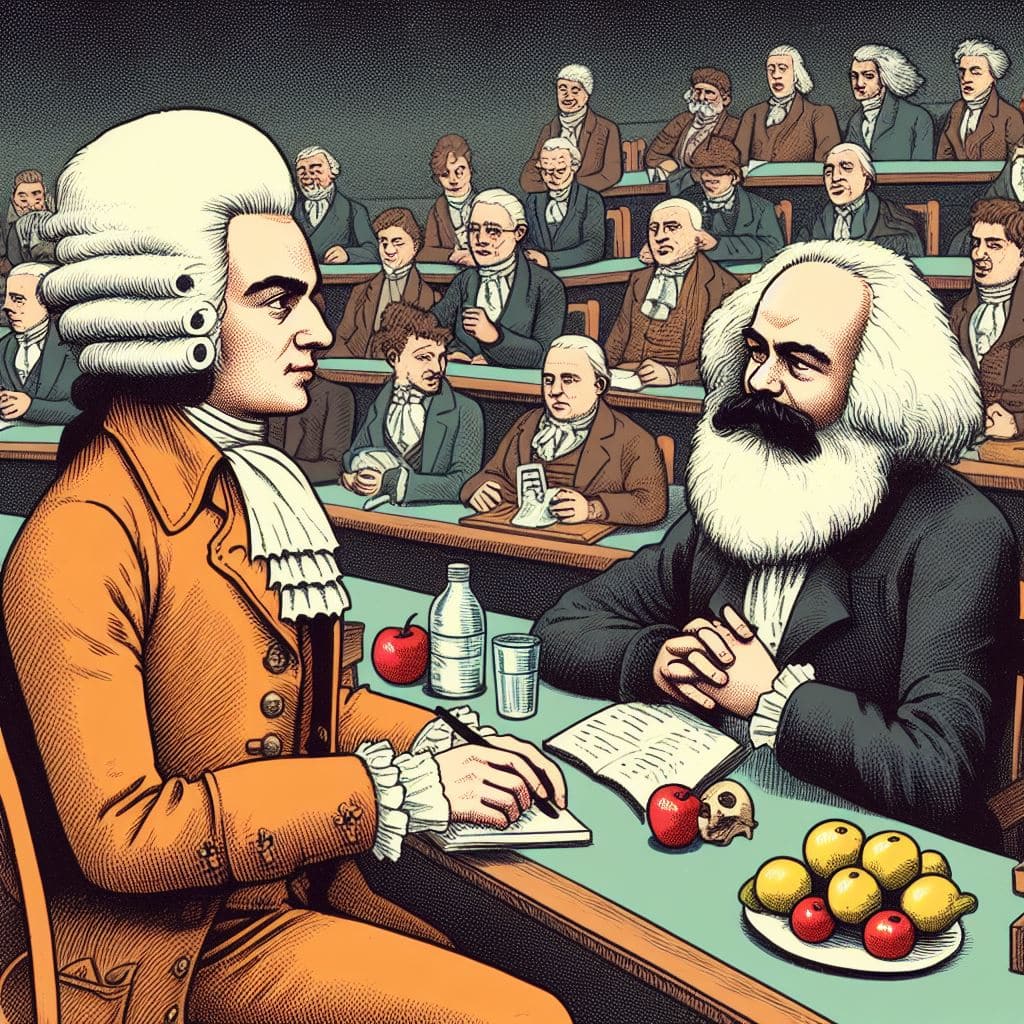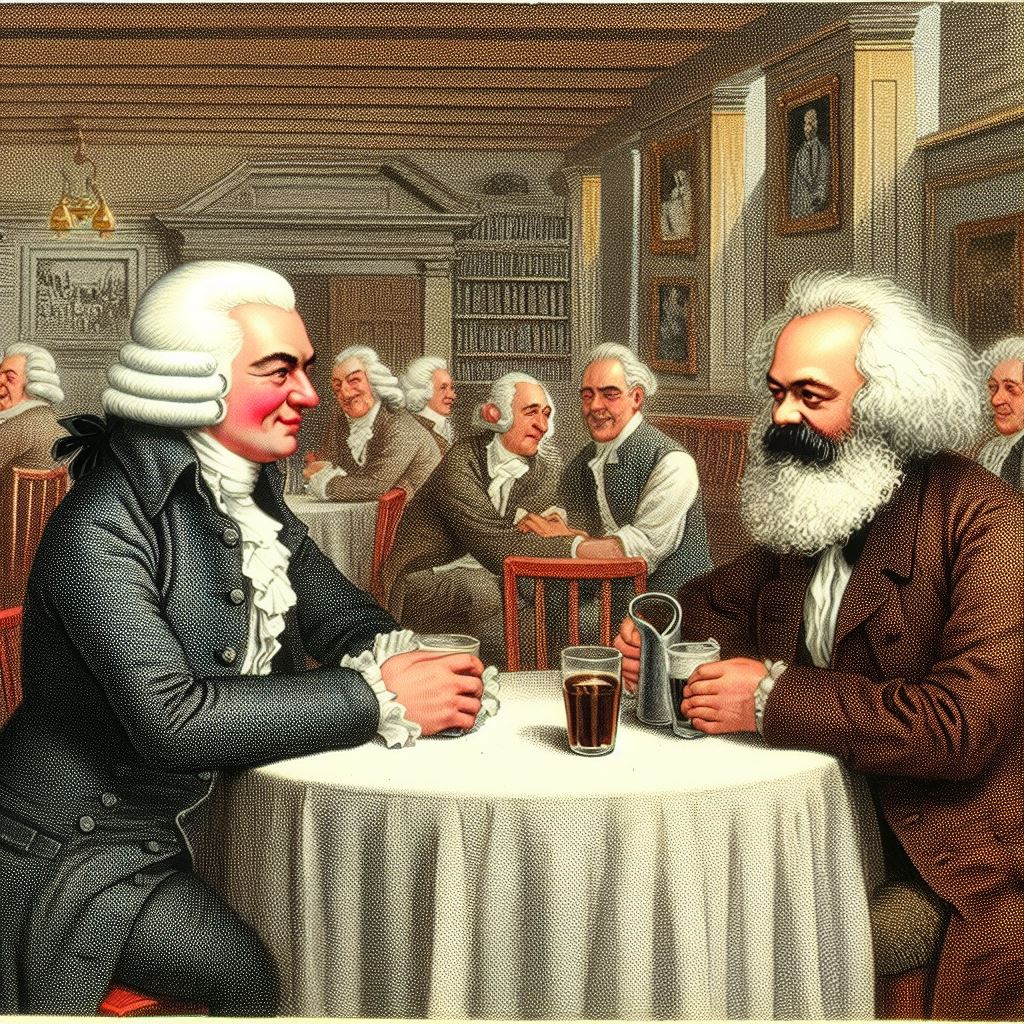Adam Smith’s 300th birthday: the market economy as the only effective tool to fight poverty (Part 2)
SUGGESTED



This article is based on a lecture Dr Zitelmann gave at the German Bundestag on 12 June.
Sympathy for the fate of the poor
Conversely, however, there are many passages that exhibit sympathy for the condition of the “poor,” whereby he did not restrict himself to the poor in the strictest sense of the word, but also the “not rich,” “that is, the condition of the vast majority of the population who must exchange labor for wages in order to earn a living.”[1] In Adam Smith’s America, Glory M. Liu reviews the reception of Adam Smith and the state of research: “There is an almost unanimous agreement that, for Smith, the most important feature of commercial society was that it improved the condition of the poor.”[2]
There is a famous passage from The Wealth of Nations: “No society can surely be flourishing and happy, of which the far greater part of the members are poor and miserable. It is but equity, besides, that they who feed, clothe, and lodge the whole body of the people, should have such a share of the produce of so much of their own labour as to be themselves tolerably well fed, clothed, and lodged.”[3]
Today, these words are sometimes misinterpreted to claim that Smith advocated government-led redistribution of wealth. That was not his intention and he was certainly not calling for social revolution. But poverty, according to Smith, was not pre-ordained. Above all, though, he did not trust governments. In Chapter 8 of The Wealth of Nations, along with the sentences quoted above, he points out that the only way to raise living standards is via economic growth.
Continuous economic growth is the only way to raise wages; a stagnant economy leads to stagnant wages. Elsewhere, he writes “famine has never arisen from any other cause but the violence of government attempting, by improper means, to remedy the inconveniences of a dearth.”[4] How right he was is something we know full well 250 years later, after hundreds, if not thousands, of failed attempts to control inflation with price controls.
The “liberal reward of labour,” Smith wrote, is “the effect of increasing wealth” and repeatedly stressed “while the society is advancing to the further acquisition … that the condition of the labouring poor, of the great body of the people, seems to be the happiest and the most comfortable. It is hard in the stationary, and miserable in the declining state.”[5]
Karl Marx, on the other hand, believed he had discovered various economic “laws” that would necessarily lead to the downfall of capitalism, such as the “tendency of the rate of profit to fall” or the impoverishment of the proletariat. In his major work, Capital, Marx formulated this as follows:
“Along with the constantly diminishing number of the magnates of capital, who usurp and monopolise all advantages of this process of transformation, grows the mass of misery, oppression, slavery, degradation, exploitation; but with this too grows the revolt of the working class, a class always increasing in numbers, and disciplined, united, organised by the very mechanism of the process of capitalist production itself. The monopoly of capital becomes a fetter upon the mode of production, which has sprung up and flourished along with, and under it. Centralisation of the means of production and socialisation of labour at last reach a point where they become incompatible with their capitalist integument. This integument is burst asunder. The knell of capitalist private property sounds . . . But capitalist production begets, with the inexorability of a law of Nature, its own negation.”[6]
When The Wealth of Nations was published in 1776, capitalism was still in its infancy and the overwhelming majority of people lived in extreme poverty. And poverty meant something very different then than it does today. People were lean and small-boned – throughout history, the human body has adapted to inadequate caloric intake. “The small workers of the eighteenth century,” Angus Deaton writes in his book The Great Escape, “were effectively locked into a nutritional trap; they could not earn much because they were so physically weak, and they could not eat enough because, without work, they did not have the money to buy food.”[7]
Some people rave about the harmonious pre-capitalist conditions when life was so much slower, but this sluggishness was mainly a result of physical weakness due to permanent malnutrition.[8] It is estimated that 200 years ago, about 20 percent of the inhabitants of England and France were not able to work at all. “At most they had enough energy for a few hours of slow walking per day, which condemned most of them to a life of begging.”[9]
In 1754, one English author reported: “Far from being well-to-do, the peasants in France do not even have the necessary subsistence; they are a breed of men who begin to decline before they are forty . . . With the French labourers, their external appearance alone proves the deterioration of their bodies.”[10] The situation was similar in other European countries. The renowned French historian Fernand Braudel states: “These then are the facts that go to make up the biological ancien regime we are discussing: a number of deaths roughly equivalent to the number of births; very high infant mortality, famine; chronic undernourishment; and formidable epidemics.” In some decades, even more people died than babies were born.[11] People’s “possessions” were limited to a few rudimentary items, as seen in contemporary paintings: a few stools, a bench and a barrel doing service as a table.[12]
Before capitalism emerged, most people in the world were living in extreme poverty. In 1820, around 90 percent of the global population was living in absolute poverty. Today, the figure is less than 9 percent. And most remarkably: In recent decades, since the end of communism in China and other countries, the decline in poverty has accelerated to a pace unmatched in any previous period of human history. In 1981, the absolute poverty rate was 42.7 percent; by 2000, it had fallen to 27.8 percent, and today it is below 9 percent.
Continue to Part 3
Dr Rainer Zitelmann is the author of The Power of Capitalism.
_____________
[1] Gilbert, Adam Smith on the Nature and Causes of Poverty, 281.
[2] Liu, Adam Smith’s America, 295, footnote 18.
[3] Smith, Wealth, 181.
[4] Smith, Wealth, 465.
[5] Smith, Wealth, 72.
[6] Marx, Capital, Volume I, 763.
[7] Deaton, 92.
[8] McCloskey, Carden, 41.
[9] Norberg, Progress, 12.
[10] Quoted in Braudel, 90–91.
[11] Braudel, 91-92.
[12] Braudel, 283.



